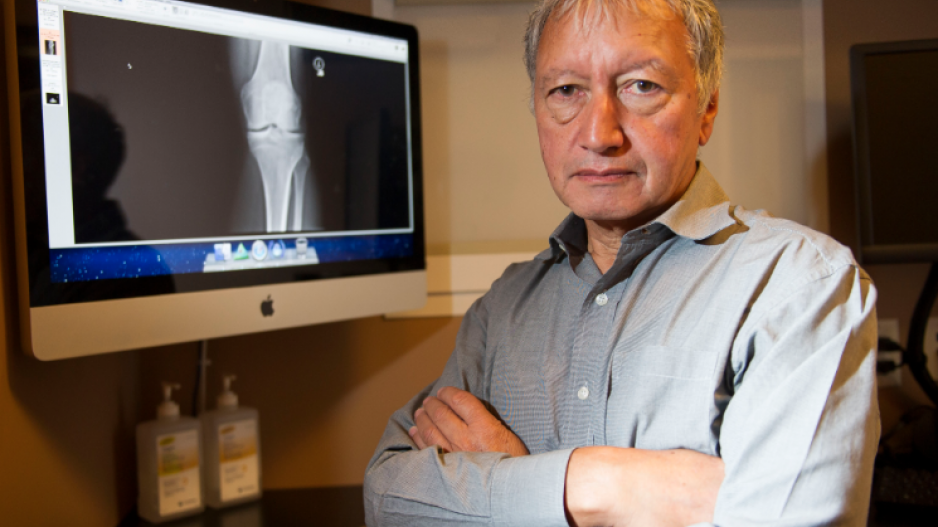A lawsuit that could change the face of B.C. health care has spurred recent protests even though it adjourned earlier this month for lawyers to attempt to reach an out-of-court settlement – a challenging task given the chasm between the two sides’ stances on whether private health care should be legal.
Regardless of the outcome, B.C. will continue to have multiple private clinics operating under different business models.
Lawyers for both the B.C. government and longtime private-health-care crusader Brian Day will likely return to court in March.
Day, who operates the Cambie Surgery Centre and the related Specialist Referral Clinic, aims to win a ruling to enable B.C. residents to spend money on surgery that they would otherwise have to wait longer for in the public system.
B.C. Attorney General Suzanne Anton, in contrast, sent a statement to Business in Vancouver saying that she aims to “require these clinics to come into full compliance with the law.”
Day admits that his clinics conduct surgeries that conflict with B.C.’s Medicare Protection Act, but he argues that B.C.’s law itself is illegal because it conflicts with Canada’s Charter of Rights and Freedoms, which guarantees a right to “life, liberty and security of the person.”
Day told BIV that the case, which could be appealed all the way to the Supreme Court of Canada, is draining him of most of the profit that his clinics generate.
He is convinced that he will win eventually, however, because the top court struck down a similar law in Quebec in 2005 – a ruling that currently applies only in that province.
“Most of our patients are treated for non-Medical Services Plan (MSP) insured services,” Day told BIV.
“We do not consider the procedures we do on B.C. residents to be illegal. On the contrary, our legal challenge is based on the argument that the provincial laws that force patients to suffer on wait-lists are illegal.”
Day’s private surgery centres are the most controversial of B.C.’s private health-care centres, but there are other contentious private clinic business models.
Critics have blasted the Copeman Healthcare Centre for years, questioning whether its fee structure leads to doctors being able to double-bill: first demanding fees from patients and then invoicing the B.C. government.
Patients pay a one-time $4,200 fee that is good for one year and then $3,200 for each subsequent year.
The clinic’s CEO, Chris Nedelmann, stressed to BIV that his Copeman clinics in Vancouver, West Vancouver, Calgary and Edmonton do not double-bill. His clinics’ doctors charge the MSP for insured services and patients for non-insured services, Nedelmann said.
Nedelmann explained that the fees are meant to pay for far more than access to a doctor. The profitable Copeman clinics also employ dietitians, kinesiologists, physiotherapists, neuropsychologists, psychologists and nurse practitioners, among other professionals.
“What Copeman is about is providing a package of uninsured services, and then we blend those services with insured services that are provided by physicians,” Nedelmann said.
Earlier this year, Montreal-based Medisys Health Group bought a majority stake in Copeman for an undisclosed amount.
Vancouver’s Don Copeman, who founded the clinic in November 2005, remains with the company but has recently shifted to focus on a new subsidiary of the company that markets an online health management system called Carebook, which Copeman clients can use for free.
Copeman’s original dream for the company was to have clinics in major cities across Canada. The Medisys transaction effectively does that, given that Medisys operates nine of its branded clinics across Canada.
Nedelmann said there is no plan to rebrand the Copeman clinics because the Copeman brand has name recognition and a good reputation.
“It’s a natural fit for the two companies,” Nedelmann said. “Medisys had been doing more one-time assessments and are now moving to do more ongoing care. Copeman had always done some one-time assessments but primarily focused on ongoing care.”
The third kind of private health-care clinic in B.C. provides similar extended services to patients but does not charge annual fees as Copeman does.
Citahealth, for example, has personal trainers, kinesiologists, massage therapists on staff in addition to doctors at both its Vancouver and Langley clinics.
There is no one-time fee and patients pay monthly for the services that they have used.




